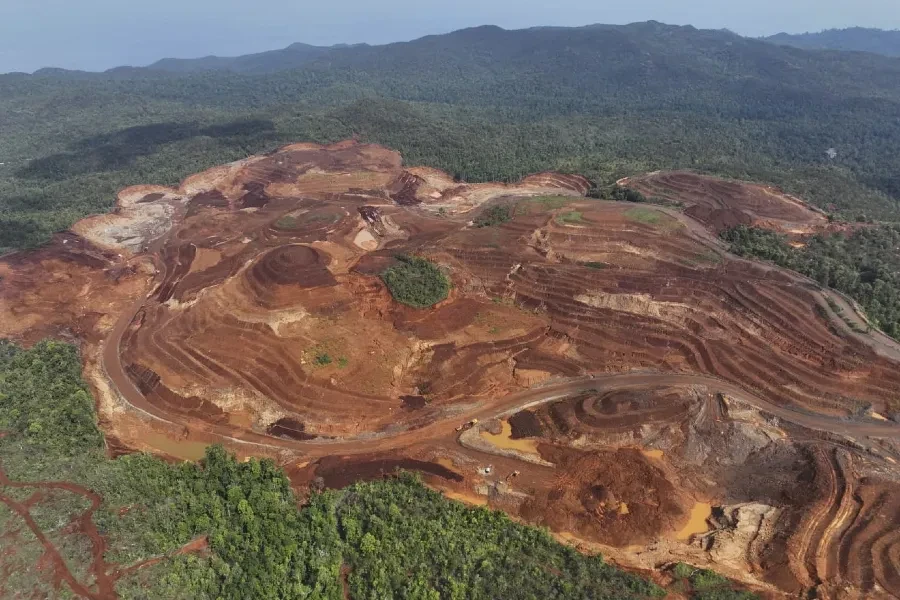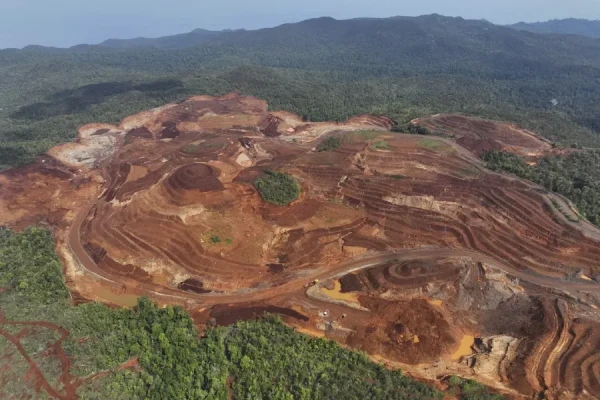Mining operations are conducted by PT Gag Nikel, a subsidiary of PT Aneka Tambang (Antam), which has been operating on Gag Island since 2018 with reserves exceeding 42 million tons of dry nickel ore. In October 2024, Antam acquired a 30 percent stake in the PT Jiu Long Metal Industry smelter for over 100 million US dollars, a move feared to accelerate mining activities on the island, some parts of which fall within protected forest zones.
The mining has triggered heavy sedimentation along the coastline. Timer Manurung, Director of Auriga Nusantara, warns that mining sludge carried by ocean currents blankets coral reefs and suffocates vulnerable marine life such as hawksbill turtles and manta rays. Sedimentation clouds the water, reduces coral productivity, and forces fish to abandon their habitats, directly harming local fishermen’s livelihoods.
The Mayor of Sorong, the gateway to Raja Ampat tourism, acknowledges that declining seawater quality has been impacting communities since 2022. Data from Statistics Indonesia reveals that tourist arrivals have tripled—from 6,500 visits in 2022 to nearly 20,000 in 2023. However, mining’s detrimental effects threaten the sustainability of the tourism industry, a vital economic pillar for local residents.
The central government, through the Ministry of Energy and Mineral Resources, states that all mining permits undergo Environmental Impact Assessments (AMDAL), but activists argue that oversight remains insufficient. The Indonesian Conservation Organization highlights that mining licenses covering a total of 22,420 hectares in Raja Ampat lack adequate zoning distinctions for marine and terrestrial conservation areas.
Local indigenous communities demand the revocation of some mining permits until independent environmental studies are completed. They fear that coral reef destruction will sharply reduce fish catches, trigger unemployment, and deepen poverty. “We have relied on the sea for hundreds of years. If the coral reefs die, we lose everything,” said a customary leader from Arborek Island.
Marine experts urge the adoption of more environmentally friendly mining technologies, limiting mining areas to a maximum of 10 percent per island, and implementing post-mining land rehabilitation programs. Without decisive action, Raja Ampat risks losing its UNESCO Global Geopark status, awarded in 2023, as well as its reputation as one of the world's premier diving destinations.
The regional government is scheduled to hold an open meeting in July 2025 to review all mining permits and discuss new conservation zoning maps. The outcome will be a critical test of Indonesia's environmental regulations’ integrity, demanding a balance between economic interests and the protection of this uniquely precious ecosystem.
Sources
- https://apnews.com/article/nickel-mining-coral-reefs-indonesia-evs-raja-ampat-c4dfe12a5bd97eac2f9e3a19f17b5b3c
- https://www.thejakartapost.com/business/2024/11/13/hotel-industry-raises-concern-over-nickel-mine-raja-ampat.html
- https://www.usnews.com/news/business/articles/2025-01-31/experts-and-advocates-warn-of-nickel-minings-risk-to-precious-marine-region-of-indonesia





